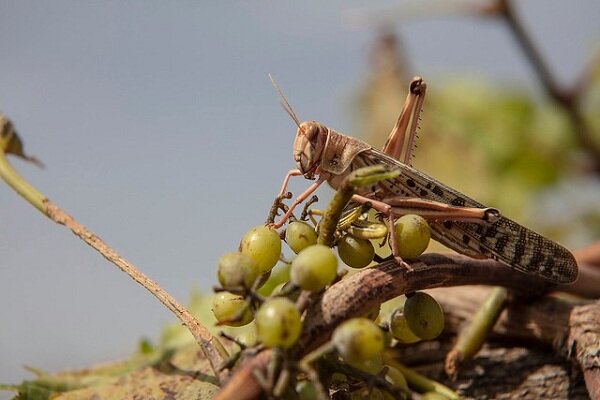Signed by FAO and Iran’s Plant Protection Organization (PPO) on 19 March 2020, the USD 300 000 Technical Cooperation Project (TCP) “Urgent action for capacity building to control desert locust infestation in the Islamic Republic of Iran”, now totals USD 500 000.
“In view of the alarming situation of desert locust in the region and the possible huge damages this pest can cause in agricultural production and rural livelihoods, FAO determined to further extend its technical assistance to Iran, and accordingly allocated additional funds to this project,” said FAO Representative to the Islamic Republic of Iran, Gerold Bödeker.
Expressing his hope to contain desert locust effectively across the country, Bödeker emphasised, “the project mainly focuses on providing around 320 Iranian experts with the requisite technical knowledge and skills to detect, track, report on and rapidly respond to desert locust infestations.”
He added, “As part of the agreement, FAO will also assist the country in procuring vital equipment needed to equip two desert locust control centres that will allow a quicker and more effective response.”
According to Keith Cressman, the Executive Secretary of the FAO Commission for Controlling the Desert Locust in South-West Asia (SWAC), “Widespread rains over the last couple of months in East Africa and South-West Asia including southern Iran, provided a conducive environment for the desert locusts to breed. In East Africa, this represents an unprecedented threat to food security and livelihoods since it coincides with the beginning of the planting season.”
Cressman who is also FAO’s Senior Locust Forecasting Officer continued, “It is crucial to join hands and share knowledge and skills to manage this dangerous migratory pest and prevent further deterioration of the situation.”
“FAO has implemented similar projects in Pakistan, Yemen and East African nations, all aimed to support its Member States in managing the threat posed by the desert locust,” added Cressman.
FAO, being the lead UN Agency dedicated to increasing food and agricultural development, monitors the global locust situation to provide early warning and forecasts. The Organization works closely with its member countries to strengthen their national capacities for better management of locust, including timely control and preventive interventions.
MNA/PR
